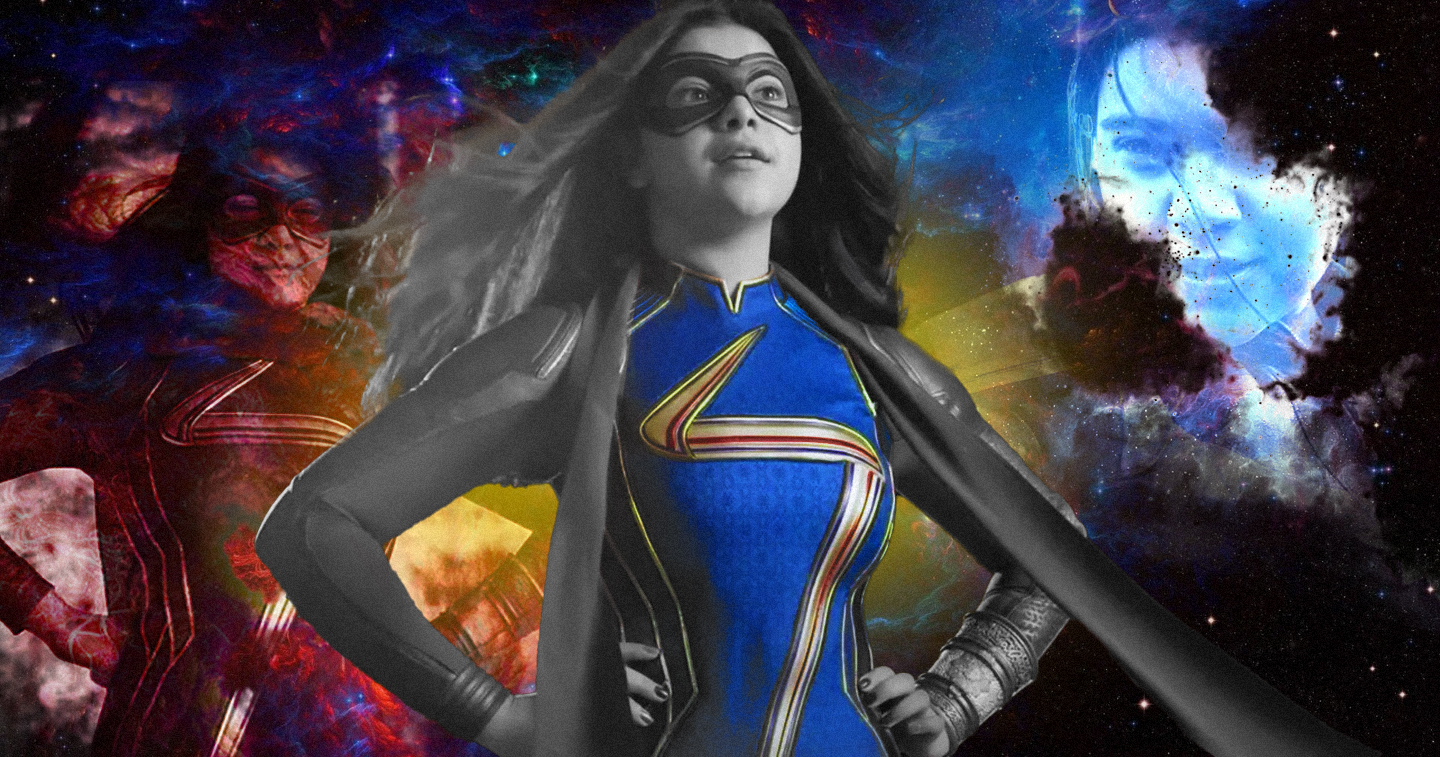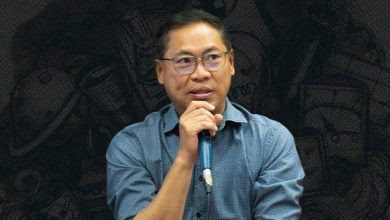MANILA, PHILIPPINES — For over a decade now, Marvel Studios has brought characters from comic books to the big and small screen with resounding success. From Iron Man and Captain America to Moon Knight and Shang-Chi, Marvel Studios president Kevin Feige has been gradually introducing multicultural and multiracial heroes. Perhaps at no time has this been more evident than with the introduction of a woman teenager of Pakistani descent in Ms. Marvel.
Kamala Khan (Iman Vellani) is a typical teenager in Jersey City. She’s grown up as part of a tight-knit community of Pakistanis centered around family and the local mosque. Surrounded by parents Yusuf (Mohan Kapur) and Muneeba (Zenobia Shroff) and older brother Aamir (Saagar Shaikh), Kamala is a fangirl of the Avengers, particularly Captain Marvel (Brie Larson).
Surrounded by her crew of Bruno Carrelli (Matt Lintz) and Nakia Bahadir (Yasmeen Fletcher), Kamala faces the same daily struggles as other teens trying to find themselves in high school. Kamala often chafes at her mom’s strict upbringing, who justifies her strictness as the way she too was raised in Pakistan.
Not allowed to attend the local AvengerCon by her parents, Kamala sneaks out anyway and cosplays as Captain Marvel. To complete the outfit, she puts on a bangle sent to her from Pakistan by her grandmother, Sana (Samina Ahmad). The bangle inadvertently causes havoc at AvengerCon but Kamala manages to save her popular classmate Zoe Zimmer (Laurel Marsden).
After getting home, however, Muneeba confronts Kamala about her sneaking out. As Kamala learns what abilities the bangle gives her, she becomes more curious about its origins. She asks both her mother and grandmother about the bangle’s original owner, her grandmother Aisha (Mehwish Hayat) but both women dismiss her.
It’s only after talking to Yusuf that Kamala learns the mysterious circumstances revolving around Sana getting lost during the partition of India and Pakistan in 1947. Given a crash course in history, Kamala must also now deal with agents from the Department of Damage Control, who witness her actions at AvengerCon via online video.
As stated earlier, the diversification of characters in the Marvel Cinematic Universe (MCU) has gradually moved to the fictional African kingdom of Wakanda, the Chinese village of Ta Lo, and even Egypt. In Ms. Marvel, though, the intersections of teenage life in New Jersey, South Asian Muslim culture, and superheroics come together unexpectedly.
Head writer Bisha K. Ali and the directing duo collectively known as Adil & Bilall pull this off thanks to very good writing that embraces what sets it apart from the rest of the MCU. From neon signs that show text exchanges between the young characters to the clothes, religious practices, and even song and dance numbers made popular in Bollywood and Lollywood cinema. Everything is so different from anything Marvel has released in the past that it’s a visual feast.
Ms. Marvel touches on a particularly difficult period in the history of Pakistan and India, namely the chaos that occurred after Britain gave them independence. It’s not just a history lesson, it also gives us some valuable insight into Pakistani culture that still resonates 75 years after the partition happened.
In the Marvel Comics source material, Kamala had decidedly different origins as far as her powers go. With this Disney+ show, the origin is tweaked to reflect her culture and (in the season finale) a connection that got many Marvel fans very excited.
The cast, with Vellani at the center, is very relatable, particularly for fellow Asians who are familiar with the strong family and religious ties that seem to resonate for most of us. The perpetual struggle between mothers and daughters happens between Kamala and Muneeba but, as revealed later, also happened between Muneeba and Sana as well. After all, what grandchild has not sought comfort from a grandparent when struggling their own parent?
The cast of mostly Indian or Pakistani heritage is actually comprised of some actors who are huge stars in those countries but are largely unknown outside their borders. Still, it must be a thrill for these actors and their fans to represent their race in what Feige calls “Phase Four” of the Marvel Cinematic Universe.
While those older actors are really Pakistani or Indian, the younger ones were either raised in North America or the United Kingdom to immigrant parents. Again, that resonates with their characters who are also children of immigrants trying to grow up American while incorporating their parents’ culture and religious beliefs into their daily lives.
The scenes that were shot in Thailand (Bangkok had to stand in for Karachi due to the political situation in Pakistan) were also eye-catching because they were so different from anything previously seen from Marvel Studios. Whether it was modern Pakistan or the Pakistan of the 1940s, the country felt alive and the chase scene amid the crowded streets gave another layer to the expanding universe.
After the departure of Robert Downey, Jr., Chris Evans, Scarlett Johansson, and other “first generation” Avengers in 2019, there was trepidation that perhaps the age of Marvel Studios churning out hit movies based on popular comic characters was over. It would seem that if one watches Ms. Marvel, Moon Knight, Shang-Chi and the Legend of the Ten Rings, and She-Hulk, it will just be a new team of heroes that will welcome this next chapter instead.
All six episodes of Ms. Marvel are streaming on Disney+.








